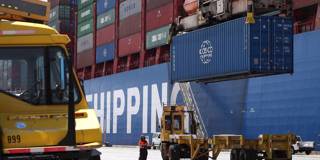US President Joe Biden will not rescind Donald Trump's tariffs on imported Chinese goods for China’s benefit. But he has three stronger reasons to do so: The measures have hurt American workers and firms, failed to reduce the overall US trade deficit, and arguably further weakened respect for global economic rules.
NEW YORK – Over the course of his presidency, Donald Trump raised US tariffs on imports from China several times, from an average of about 3% when he took office in January 2017 to over 20% by the end of 2019. As a result, the current average US tariff on Chinese goods is essentially at the same level that the United States imposed on the rest of the world in the early 1930s under the Smoot-Hawley Act, a protectionist measure that many economists blame for the severity of the Great Depression. Now that President Joe Biden is reversing many of Trump’s policies, including import tariffs on European goods, he has to decide whether to rescind his predecessor’s China tariffs, too.

NEW YORK – Over the course of his presidency, Donald Trump raised US tariffs on imports from China several times, from an average of about 3% when he took office in January 2017 to over 20% by the end of 2019. As a result, the current average US tariff on Chinese goods is essentially at the same level that the United States imposed on the rest of the world in the early 1930s under the Smoot-Hawley Act, a protectionist measure that many economists blame for the severity of the Great Depression. Now that President Joe Biden is reversing many of Trump’s policies, including import tariffs on European goods, he has to decide whether to rescind his predecessor’s China tariffs, too.